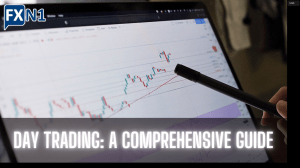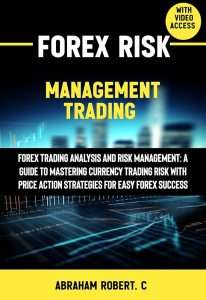Choosing the Right Forex Broker: A Comprehensive Guide
Unlock forex success! This guide helps you choose the right forex broker, covering key features, regulation, and platforms. Find a broker that fits YOUR style!
Choosing the right forex broker is crucial for success in the foreign exchange market. The sheer number of options available can be overwhelming. This guide aims to provide you with a thorough understanding of the factors to consider when selecting a broker. We’ll delve into key features, regulatory compliance, and trading platforms to empower you to make an informed decision. Ultimately, your success hinges on finding a broker that aligns with your trading style and risk tolerance.
Understanding the Forex Market
The foreign exchange market, or forex, is a decentralized global marketplace where currencies are traded. It’s the largest and most liquid market globally, operating 24 hours a day, five days a week. This constant activity presents both opportunities and challenges for traders. Understanding the market’s intricacies is paramount before even considering which broker to choose.
Market Volatility and Risk
Forex trading involves inherent risks due to market volatility. Currency values fluctuate constantly based on various economic and geopolitical factors. Successful forex trading requires careful risk management and a thorough understanding of market dynamics. Ignoring these aspects can lead to significant losses. Therefore, selecting a broker that provides robust risk management tools is vital.
Leverage and Margin
Forex brokers often offer leverage, allowing traders to control larger positions with a smaller amount of capital. While leverage can magnify profits, it also amplifies losses. Understanding margin requirements and managing leverage effectively is crucial to avoid substantial financial setbacks. Brokers should clearly explain these aspects, and responsible traders should always use leverage cautiously.
Key Features to Consider When Choosing a Forex Broker
Selecting the right forex broker requires careful consideration of several key features. These features influence your trading experience, profitability, and overall satisfaction. Ignoring these aspects can hinder your progress and potentially lead to frustration.
Regulatory Compliance and Security
A reputable forex broker will be regulated by a recognized financial authority. This regulation ensures compliance with industry standards, protecting traders’ funds and ensuring fair practices. Look for brokers regulated by bodies like the FCA (UK), ASIC (Australia), or the CFTC (USA). Security of your funds is paramount, and a well-regulated broker provides a layer of protection.
Trading Platforms and Technology
The trading platform is your primary interface with the market. A user-friendly platform with advanced charting tools, technical indicators, and order execution capabilities is essential. Consider factors such as speed, reliability, and the availability of mobile trading apps. A robust platform is crucial for efficient trading and successful decision-making.
Spreads and Commissions
Spreads represent the difference between the bid and ask price of a currency pair. Low spreads are advantageous as they reduce trading costs. Some brokers charge commissions in addition to spreads. Compare spreads and commission structures across different brokers to find the most cost-effective option. Transparent pricing is a crucial factor to consider.
Customer Support and Education
Reliable customer support is essential, especially for novice traders. Look for brokers that offer multiple support channels, such as phone, email, and live chat. Educational resources, such as webinars, tutorials, and market analysis, can significantly enhance your trading skills; A responsive and knowledgeable support team can alleviate stress and aid in problem-solving.
Account Types and Minimum Deposits
Forex brokers typically offer different account types catering to various trading styles and capital levels. Consider the minimum deposit requirements and the features offered with each account type. Choose an account that aligns with your trading goals and financial resources. A clear understanding of account types is vital for effective trading.
Types of Forex Brokers
The forex market offers a variety of brokers, each with its own strengths and weaknesses. Understanding these differences is crucial for selecting the broker that best aligns with your trading needs.
Dealing Desk Brokers (DD)
Dealing desk brokers act as counterparties to your trades, meaning they take the other side of your position. This can potentially lead to conflicts of interest, as the broker’s profit depends on your losses. While some traders might find dealing desk brokers appealing due to tight spreads, the potential for conflict should be carefully considered.
No Dealing Desk Brokers (NDD)
No dealing desk brokers act as intermediaries, routing your orders directly to the interbank market. This model eliminates the potential conflict of interest present in dealing desk setups. NDD brokers typically offer greater transparency and faster execution speeds. These features are appealing to many experienced traders.
Electronic Communication Networks (ECNs)
ECNs are electronic systems that connect multiple market participants, facilitating direct order execution. ECN brokers often provide access to deeper liquidity and potentially tighter spreads. However, they might have higher commission structures than other broker types. ECNs often appeal to high-volume traders.
Reviewing and Comparing Forex Brokers
Before selecting a forex broker, it’s crucial to conduct thorough research and compare different options. This involves examining multiple factors and assessing their suitability to your trading style.
Checking Reviews and Testimonials
Read independent reviews and testimonials from other traders to gain insights into their experiences with different brokers. Look for patterns and recurring issues to identify potential red flags. Pay attention to comments regarding customer support, platform reliability, and execution quality.
Comparing Key Features Across Brokers
Create a spreadsheet to compare key features, such as spreads, commissions, account types, regulatory compliance, and platform functionalities, across several brokers. This systematic approach allows for a fair comparison and helps you identify the broker that best suits your needs.
Considering Trading Style and Risk Tolerance
Your trading style and risk tolerance significantly influence the choice of broker. Scalpers, for example, need extremely low latency and tight spreads, while long-term investors might prioritize educational resources and strong customer support. Align your choice with your trading strategies.
Demystifying Forex Broker Fees
Understanding the various fees associated with forex trading is critical for managing your profitability. Hidden fees can significantly impact your returns, so transparency is vital.
Spreads Explained
Spreads are the difference between the bid and ask price of a currency pair. They are the primary cost for most forex traders. Tight spreads are advantageous, minimizing trading costs. Consider the average spread offered by the broker across various currency pairs.
Commissions and Other Fees
Some brokers charge commissions in addition to spreads. These commissions can vary depending on the trading volume and account type. Be aware of any additional fees, such as inactivity fees, withdrawal fees, or overnight financing charges. A thorough understanding of all charges is essential.
Hidden Costs to Watch Out For
Beware of hidden costs, such as slippage (the difference between the expected price and the actual execution price) or requotes (delays in order execution due to market conditions). Reputable brokers will clearly disclose all fees and charges in their terms and conditions. Transparency is paramount.
Protecting Yourself from Forex Broker Scams
The forex market unfortunately attracts unscrupulous individuals. Protecting yourself from scams requires vigilance and due diligence.
- Verify Broker Regulation: Ensure the broker is regulated by a reputable financial authority.
- Check Online Reviews: Read independent reviews from multiple sources before depositing funds.
- Avoid High-Pressure Sales Tactics: Be wary of brokers who use aggressive sales tactics or unrealistic promises.
- Start with a Small Account: Begin with a small amount to test the broker before committing significant funds.
- Understand the Terms and Conditions: Carefully read and understand the broker’s terms and conditions before agreeing.
Always remember to conduct thorough due diligence before selecting a forex broker. A cautious and informed approach is the best defense against scams.
Choosing the Right Forex Broker for You
Selecting a forex broker is a personal decision. The best broker for one trader might not be suitable for another. Consider your individual needs and preferences when making your choice.
Beginners vs. Experienced Traders
Beginners often benefit from brokers with comprehensive educational resources and excellent customer support. Experienced traders might prioritize low spreads, fast execution speeds, and advanced trading tools. Tailor your choice to your level of experience.
Scalpers vs. Long-Term Investors
Scalpers need brokers with extremely low latency and tight spreads. Long-term investors might focus on reliable platform stability, robust risk management tools, and access to fundamental analysis.
- Prioritize regulatory compliance.
- Compare trading platforms and technology.
- Analyze spreads and commissions carefully.
- Assess customer support and educational resources.
- Understand account types and minimum deposits.
By carefully considering these factors, you can choose a forex broker that aligns perfectly with your individual trading style, risk tolerance, and long-term goals. Thorough research and due diligence are critical for successful forex trading.
Ultimately, finding the right forex broker is a journey, not a destination. As your trading experience grows, your needs might evolve, requiring a reevaluation of your broker. Regular review ensures you are using the tools best suited to your current strategy and risk profile. Continual learning and adaptation are essential in the dynamic world of forex. Remember, responsible trading and a well-chosen broker are cornerstones of success. Consistent monitoring and a proactive approach will help you navigate the market effectively and achieve your financial objectives.







